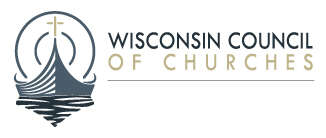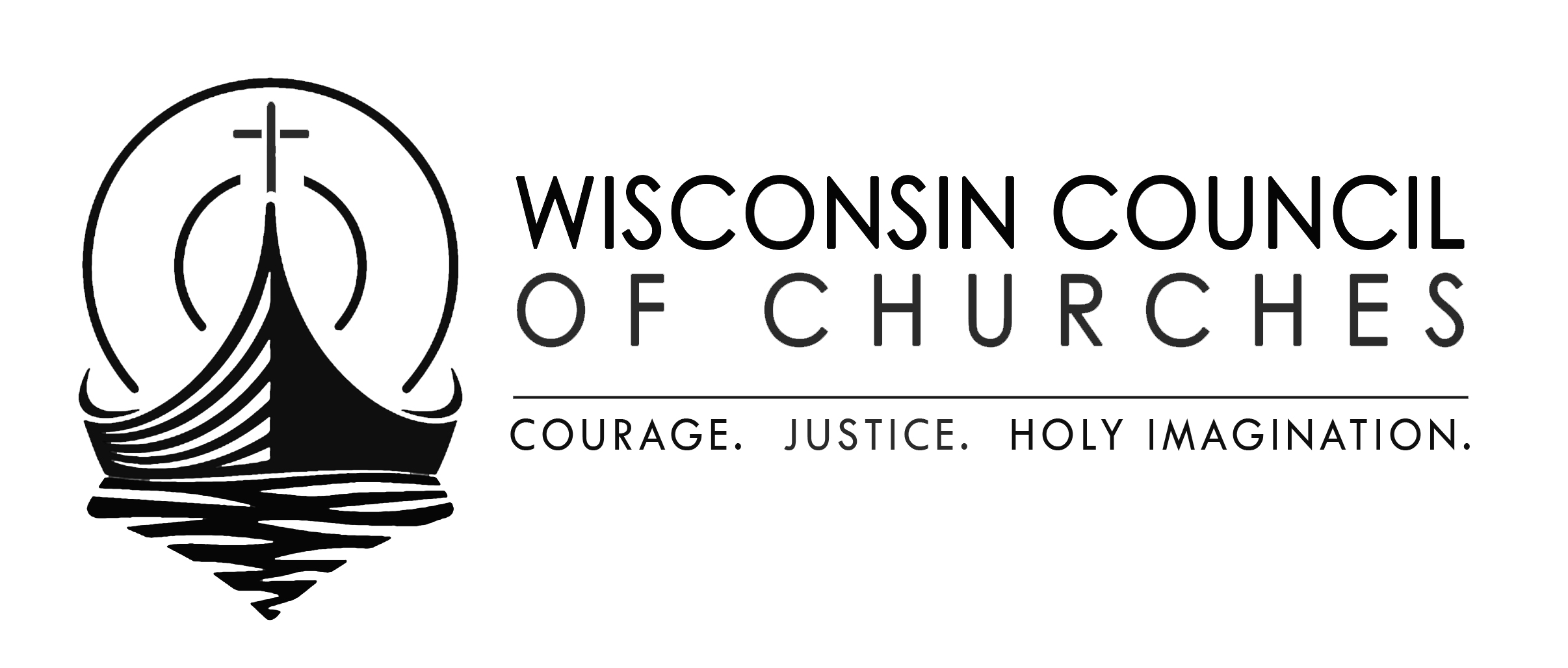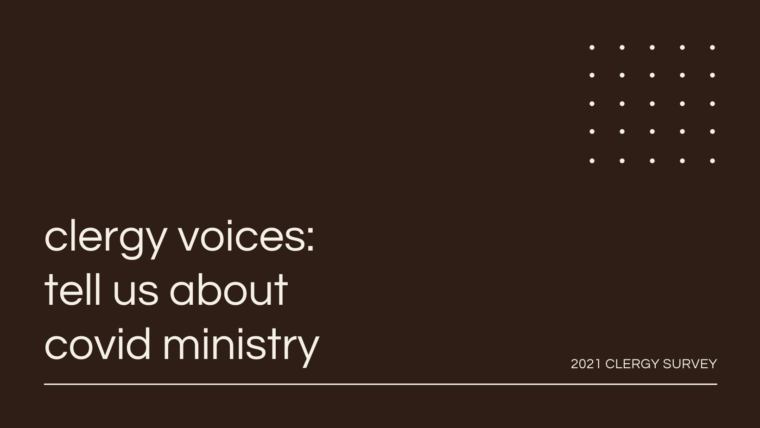Poor People’s and Moral March on Washington
On June 18, 2022, the Mass Poor People’s and Low-Wage Workers’ Assembly and Moral March on Washington and to the Polls took place in Washington DC. As a mobilizing partner, the Wisconsin Council of Churches publicized, helped fund and awareness-raising efforts, and intended to send a staff member, Pastor Libby Howe. Unfortunately, Pastor Howe was unexpectedly unable to attend in person, so she watched online with thousands of others. She interviewed Rev. Ari Douglas (they/them), pastor of First Christian Church (Disciples of Christ) in Janesville who serves on the Coordinating Committee as one of the tri-chairs for the Wisconsin Poor People’s Campaign. The conversation they had follows below.



Rev. Howe: Hi Pastor Ari. Thanks so much for taking the time to talk with me about your experience. I’m going to start with a very open-ended question and let you take it to whatever you think is most important for people to know. When you think back on your week in DC with the Poor People’s Campaign, just tell us what happened.
Rev. Douglas: It’s important to talk about the “before” that led to it [June 18]. On Monday, June 13, state campaign organizers from across the nation joined in DC to canvas DC and southern Maryland to Northern Virginia in order to have the greatest local turnout we could. After orientation on Tuesday morning, we spent the rest of the day and all of Wednesday and Thursday canvassing and encouraging people to come out to the assembly on June 18.
Friday was more impactful for me than the event on June 18 itself. We held a community dinner that was free for everyone who came. We had people who were wealthy and people who were unhoused eating side by side together. People who were clergy members and atheists dining together. We heard words from people who were impacted, shared during meals and in declaration for the day to come.
Following the dinner, as a state campaign organizer, I led a group from Freedom Plaza (where we had our dinner) to the COVID memorial service at the Lincoln Memorial, and at the wall we had erected names of COVID victims. In my group were people from all different races and ages and states and genders. Just in that group we discussed the buildings we saw on our walk to the memorial service. Many of the buildings in Washington DC are modeled after temples of ancient Greece, including the treasury building. It reminded me of when Jesus said “No one can serve two masters…You cannot serve God and wealth.” There’s literally a temple to wealth right there! So when we see “In God we Trust” on our money and monuments, we have to wonder what god we’re talking about.
The COVID victims memorial service was deeply touching. There were hymns – both secular and sacred music – speakers, and lots of people who had been affected by COVID. At the end we were invited to write the names of those we had lost, and I wrote the name of a congregant who was the only person in my former congregation who knew of my non-binary status. I also brought names that others gave me. There were lots of good friends who gave good hugs that day. I cried a lot.
The next morning state campaign organizers were at the event site hours before it began to get final instructions on marshaling. We received our location assignments and t-shirts and had a chance to walk the land before the event began. There were clergy and faith leaders from every tradition present. Myself and other clergy prayed for peace and for justice before it started. The event was marked to start at 10am and we didn’t end until 5pm. I think over the course of the day it’s fair to say around 50,000 people were there.
Rev. Howe: That sounds incredible! I so wanted to be there. What was one really touching moment from Saturday you can tell us about?
Rev. Douglas: The very first speaker was Mark Denning from WI. He’s an indigenous leader who spoke about his experience with the lack of access to the mental health care his children needed. He had 3 who died by completing suicide. The entire event is on Facebook but it’s seven hours…if you don’t have seven hours but you do have a few minutes, I’d like to encourage you to listen to Mark’s words. You can find that at
Wisconsin Poor Peoples Campaign on Facebook.
Rev. Howe: That’s so heartbreaking. I think I heard him speak at the mobilizing event in Madison. His testimony is so powerful. Were there any issues with city government, law enforcement, or people opposed to the movement? I know some folks were concerned about that.
Rev. Douglas: We didn’t have any issues with the city or law enforcement. I did have a conversation with a street custodian who said he had been directed [not sure by whom] to specifically take down Poor People’s Campaign posters and stickers. But we just kept putting them up, and he and others who were supposed to be taking them down just ignored the orders and did not take them down.
Rev. Howe: I’m glad that was the extent of any trouble. Pretty mild considering. Anything else you want us to know about that day?
Rev. Douglas: There was a lot to say – a lot of people to hear from. The Freedom Choir was a choir who was there. It was a group assembled for this event from all the states, and they did a great job. It was a very empowering event.
Rev. Howe: It sounds like it! Along those lines, tell us why a gathering like this is important. What does it do for the movement?
Rev. Douglas: In addition to the community building and positive, powerful energy this is a strategic move based on Rev. Dr. Martin Luther King’s teachings about the 6 steps in the fight for justice using non-violent direct action. In that model, a gathering like this is the 4th step, Negotiation. Make sure your opponent knows what you’re working for/demanding. Come with a spirit of collaboration to solve problems together. Do not humiliate them. Call them to do their best in response. This gathering was to do the 4th step. Make sure they know what our demands are. And they do. There’s no one in Congress that doesn’t know we were there. The 5th step is nonviolent direct action depending on the response to our demands. [The 6th step is reconciliation. Steps 1, 2 and 3 are Information Gathering, Education, and Personal Commitment, respectively.]
Rev. Howe: So what’s next?
Rev. Douglas: Congress has to embrace the
3rd Reconstruction – bills and acts that would result in [among other things] 1000 green economy jobs, a true lifting up of those who are on the bottom so everyone rises, at least a $15 federal minimum wage, and a guaranteed right to unionize.
Rev. Howe: What’s the outlook? Who in Congress might respond favorably? And what obstacles do you see?
Rev. Douglas: There’s hope in particular leaders from WI and not hope in others. I am purposely not naming names because the Poor People’s Campaign does not endorse ANY political candidates. What is necessary are people who are publicly supporting our agenda to be elected and re-elected. Our next focus is on voting – concentrating on an effort to get the more poor and low-income individuals to show up and vote in Wisconsin on Aug. 9 and in November.
Rev. Howe: What else is important for people to know?
Rev. Douglas: We need them! It doesn’t matter where you are economically. It doesn’t matter your gender or religious expression. We need every individual of moral fiber to stand with us. We are facing radical courts that are overturning 50 years of legal precedent and law. We are facing legislatures that are denying people health care. We need to change this. And the way to do that is people – to build our capacity with more people.
Rev. Howe: What do I do right now?
Rev. Douglas: Mark August 9 to vote. Every single person should vote. And if you’re interested in working alongside the WI Poor People’s Campaign- find us on
Facebook or our
website. If you’re a faith leader, reach out to me directly at
c.douglaspsalm85@gmail.com.
Rev. Howe: Will the PPC be providing guidance to voters?
Rev. Douglas: Yes, at least and especially through the League of Women Voters who is one of the Poor People’s Campaign’s mobilizing partners. The
full list of mobilizing partners can be found on the Poor People’s Campaign
website. Mobilizing Partners are organizations who committed to send people to DC on June 18.





